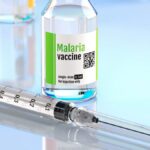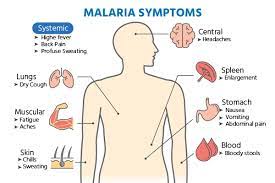The Future of Malaria Vaccines in Africa: Hopes & Challenges

Malaria remains one of Africa’s deadliest diseases, responsible for over 600,000 deaths every year, with children under five and pregnant women most at risk (WHO). Despite decades of progress with insecticide-treated nets, indoor spraying, and effective medicines, malaria continues to strain healthcare systems and economies. But today, vaccines like RTS,S (Mosquirix) and the new R21/Matrix-M represent a turning point in the fight against this deadly disease. Could they finally lead to malaria elimination in Africa?
The Breakthrough of RTS,S (Mosquirix)
In 2021, the World Health Organization (WHO) approved RTS,S, the first-ever malaria vaccine, for use in children living in high-burden regions. Countries like Ghana, Kenya, and Malawi led the pilot programs, protecting hundreds of thousands of children. Studies show that RTS,S can prevent 30–40% of severe malaria cases, a significant achievement considering no malaria vaccine had ever reached this stage before.
However, RTS,S has limitations:
-
Moderate effectiveness – protection wanes after a few years.
-
High cost of production – making widespread rollout challenging.
-
Logistical barriers – distribution in rural Africa requires cold-chain storage and reliable infrastructure.
Still, it marked the beginning of a new era in malaria prevention.
R21/Matrix-M: A Stronger Contender
Developed by the University of Oxford, the R21/Matrix-M vaccine is now being hailed as a game-changer. Early trials in Burkina Faso showed up to 77% effectiveness, surpassing the WHO’s 75% target for malaria vaccines. In 2024, several African countries, including Nigeria and Ghana, began rolling out R21 widely.
Advantages of R21:
-
Higher efficacy compared to RTS,S.
-
Cheaper and easier to produce, making it more scalable for Africa.
-
Large-scale adoption potential, especially for children under five.
If production scales successfully, experts believe R21 could save millions of lives and prevent countless hospitalizations in the next decade.
Challenges Ahead for Vaccine Rollout
While vaccines offer hope, challenges remain:
-
Supply vs. Demand – Africa accounts for over 90% of global malaria cases, but supply chains may struggle to meet the massive demand for R21.
-
Public Mistrust & Misinformation – As seen with COVID-19 vaccines, rumors and conspiracy theories can slow adoption. Community health education will be key.
-
Funding Gaps – With recent U.S. aid cuts threatening malaria programs (El País), African governments must step up investment.
-
Complementary Strategies – Vaccines alone won’t end malaria. Bed nets, early diagnosis, and new treatments must continue alongside immunization.
Opportunities for Africa’s Health Systems
Despite the hurdles, vaccines could transform Africa’s healthcare landscape:
-
Fewer hospitalizations – easing the burden on underfunded hospitals.
-
Economic growth – reducing malaria improves productivity and school attendance.
-
Stronger health systems – mass vaccination campaigns can strengthen healthcare delivery and infrastructure in rural communities.
For Africa, the vaccines are not just about malaria—they are about building resilience against future health crises.
What the Future Holds

Experts believe the combination of vaccines, AI-powered outbreak forecasting, genetically modified mosquitoes, and improved treatments could make malaria elimination in Africa achievable by 2030–2040.
But success will depend on:
-
Strong political will.
-
Community engagement.
-
Sustainable funding.
-
Innovation-driven public health strategies.
As Dr. Tedros Adhanom Ghebreyesus of WHO once said, “A malaria-free future is possible, but only if we work together.”
Conclusion
The introduction of malaria vaccines in Africa is one of the most significant health breakthroughs in decades. While RTS,S has already saved lives, R21 promises even greater hope. By combining vaccines with proven malaria prevention and treatment strategies, Africa could finally edge closer to a malaria-free future.
At HubPharm Africa, we remain committed to supporting patients, raising awareness, and providing access to genuine, affordable medicines and health innovations. Together, we can turn the tide against malaria.
Written by Fawzi Rufai, Medically Reviewed by Sesan Kareem



